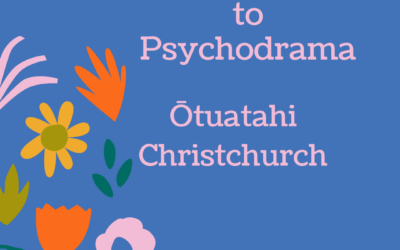PANZ Ōtepoti Dunedin
The PANZ Ōtepoti Dunedin Campus provides training leading to certification as an AANZPA practitioner of Psychodrama, Sociodrama, Sociometry or Role Training. The Campus curriculum and practice is governed by the AANZPA Code of Ethics and the AANZPA Board of Examiners’ Training and Standards Manual.
Training Information
Enrolment
About training
Training agreement
Training plan
Complaints procedure
Policy manual
The Structure of the Training Process
Training involves attending the year-long programme, other training and personal development workshops, reading, writing, practising with peers, attending supervision and other social activities. Training is open to those who wish to develop their professional abilities without necessarily becoming certificated practitioners in psychodrama.
For some people attending a year or two of training enhances their ability to do the particular work they are focused on. Other people experience a desire to develop a level of sophistication and excellence in working with people using the psychodramatic method. These people work for 5 to 7 years to achieve certification with the Australian and Aotearoa New Zealand Psychodrama Association (AANZPA) as a Psychodramatist, Sociodramatist, Sociometrist or Role Trainer.
At the end of the training year, each trainee has a 40-minute consultation with members of the training staff to review role development, progress and next steps in their training.
PANZ Ōtepoti Dunedin Training Programme
Ōtepoti Dunedin Multi-Level Psychodrama Training 2025
Ōtepoti Dunedin: Begins 28 February 2025. Multi-level training in 2025 involves participating in a year-long programme consisting of experiential workshops, reading, writing, a peer practice group and supervision.
Marae Based Intensive Psychodrama Workshop 2025
Karitane. 24 -28 September 2025. This experientially based training includes both theoretical and practical components. This workshop is suitable for anyone working in the human relations field.
Introduction to Psychodrama February 2025
14 & 15 February 2025. Ōtautahi Christchurch. This psychodrama weekend being offered by PANZ Ōtautahi Christchurch Campus is open to anyone who wants to experience the psychodrama method and will be of particular interest to those of you considering training in psychodrama.
Group Leadership 2025 Ōtepoti Dunedin
Ōtepoti Dunedin. Led by Sara Crane and Judith McDonald. This experientially based training includes both theoretical and practical components. This is part of the training for Ōtepoti Dunedin trainees and is open to others.
PANZ Ōtepoti Dunedin Staff
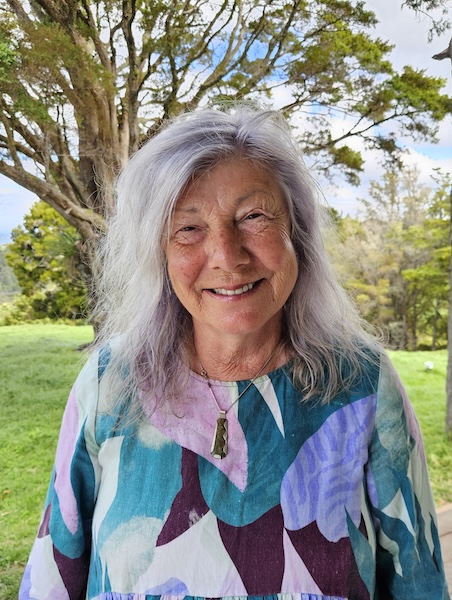
Sara Crane
Director of Training PANZ Ōtautahi and Ōtepoti Campuses
Sara Crane is a TEP and Psychodramatist. She is the Director of Training for PANZ Ōtepoti Dunedin and Ōtautahi Christchurch and works as a visiting trainer in Brisbane. Sara’s love of psychodrama is grounded in her belief in the transformative power of spontaneity and human connection.
Sara has worked across multiple regions and sectors, giving her a rich understanding of the varied applications of psychodrama. She supports individuals and groups in navigating complex relational issues including a focus on family dynamics and extensive work with children in the context of their Whanau. She was involved in setting up START which was formed to provide clinical services to people who had survived sexual trauma. She has worked at a systemic organisational level including supervising teams within the NZ Ministry of Justice and attending to children and families in the legal system. She enjoys working with complex family systems supporting them to mediate conflicts and achieve healthier, more supportive relationships.
Sara is deeply concerned about the state of our changing world and the pressure and challenges for our communities. As a trainer, she seeks to support trainees to strengthen their abilities and develop their professional capacities to make a difference.
As a member of AANZPA, she has taken on several roles (President, Journal Editor) and appreciates the opportunities to participate in conferences and the ongoing life of the association.
Sara is a Registered Psychotherapist (PBANZ) and Advanced Clinical Practice Certificate (NZAP).
For her solace, Sara loves to write flash fiction, finding joy in the brevity and emotional depth of the form. Her dogs, cats and llamas continue to be beloved companions in both her outdoor adventures and some of her professional work. Psychodrama has enabled her to bring the threads of her life together and pass on the complexities and wisdom of the method.
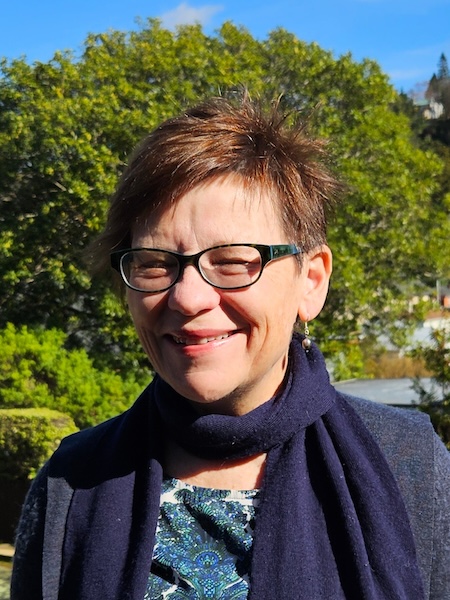
Judith McDonald
PANZ Ōtepoti Dunedin Campus
Judith works in private practice as a Registered Psychotherapist. Her pathway to attaining her interim psychotherapy registration was by qualifying as a Psychodramatist. She enjoys walking, reading, semi-occasional gardening and getting away for weekends and holidays with her family and dog in their house bus.
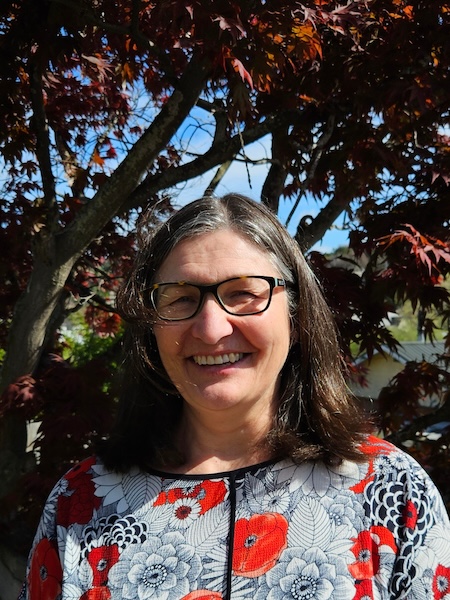
Maria Snegirev
PANZ Ōtepoti Dunedin Campus
Maria is a Psychodramatist, Registered Psychotherapist and experienced group facilitator. She has been a member of AANZPA since about 2010 and has held various roles on the committee of the Otago branch.
Maria studied at Otago and has a B.A. in Russian Language and Literature, and a Diploma in Teaching. She has 20 years experience in leading Non-Violence programmes and has completed level 1 of Imago training.
Maria’s training journey began with her experiences in teaching children. This grew into a commitment to social justice which has been most strongly expressed in her work at Stopping Violence Dunedin. Her current focus is on expanding the range of her clinical experience by building up her private practice.
Maria’s interesting surname comes from her Russian parentage. She is the daughter of refugees who settled in Southland in the 1960s. This experience has created a life long interest in the transmission of language and culture. An interest in language is shared by her husband Andrew. They both thought very carefully when choosing the names of their two children, who occasionally forgive them.
Maria is passionate about gardening, even the weeds fascinate her! Other outlets for her creativity are; creating with fabrics, mosaics and more recently, macrame. She is currently obsessed with transforming a steep wasteland into a garden with veggies, flowers, native plants, and maybe even a hive of bees
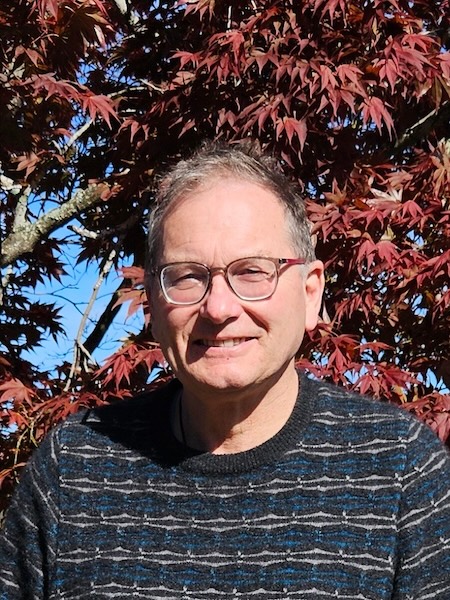
Simon Gurnsey
PANZ Ōtautahi Christchurch Campus
Simon Gurnsey is a Sociometrist and Trainer Educator Practitioner in training (TEPit). He provides training in the PANZ Ōtautahi Christchurch and Ōtepoti Dunedin Campuses. He has held various leadership roles within the Australian and Aotearoa New Zealand Psychodrama Association (AANZPA), including Treasurer on the Executive committee and was the AANZPA Membership Administrator for many years. Since 2017, when he began working as a trainer, Simon has led training workshops and programs that empower individuals and groups to tap into their spontaneity, creativity and relational potential.
Simon's current focus lies in exploring how psychodrama can be used to foster inclusion and equity in professional settings. He has worked for many years in NGO organisations Including post-earthquake with Ōtautahi organisation's Gap Filler and Greening the Rubble. His systemic orientation integrates a focus on the community, the developmental and the political spheres in enabling effective organisation and action. Simon is particularly interested in how psychodrama can support individuals to develop greater self-awareness, authenticity and spontaneity within the context of their communities. He has been published in AANZPA's journal, where he writes about mythical stories, organisational culture, and the application of sociometry.
Simon holds qualifications in Not for Profit management. The skills developed through this complement his psychodrama experience, enabling him to integrate broader theories of human development, organisational dynamics and interpersonal communication into his practice. His leadership training has made him particularly effective working with teams and individuals in community organisations, helping them to navigate complexity with greater clarity and spontaneity.
Outside of his professional life, Simon keeps his creativity flowing through his passion for building things out of wood and earth. He enjoys spending time at the home he shares with Sara Crane and a large number of domestic animals. Simon's dedication to personal growth and community connection drives both his work and personal endeavours, allowing him to bring authenticity, curiosity and warmth to all aspects of his life.
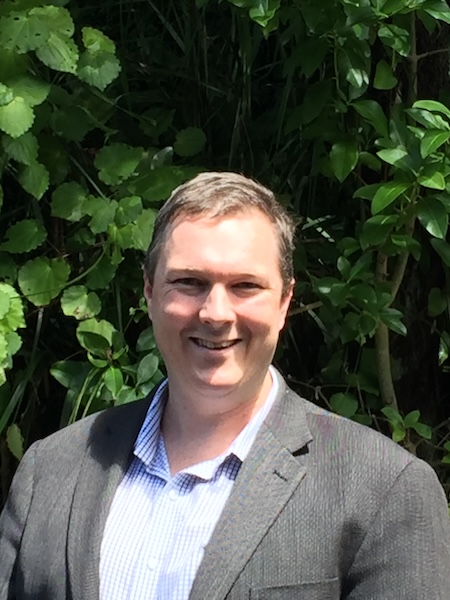
Hamish Brown
Tāmaki Makaurau Auckland Campus
Hamish is a Psychodramatist and Trainer Educator Practitioner (TEP). He delivers training in Aotearoa New Zealand through the Auckland, Christchurch and Dunedin Campuses of PANZ.
Hamish is a psychotherapist who has worked in private practice since 2002. He sees a wide range of clients including individuals, couples and groups. He was appointed to Te Poari o ngā Kaihaumanu Hinengaro o Aotearoa | Psychotherapists Board of Aotearoa New Zealand (PBANZ) in 2016 and served as the PBANZ Chair between 2020 and 2023.
Hamish has been an organisational consultant since 1997. He has worked in several countries on projects including training people in group facilitation, and leadership and has led large-scale projects oriented to producing systemic and organisational change. He co-founded Phoenix Facilitation in 2008 to provide organisational consulting based on Moreno's social theories.
Hamish holds a Post Graduate Diploma in Psychoanalytic Psychotherapy from the Auckland University of Technology (AUT) and a Master’s Degree in Dispute Resolution from Massey University,
Hamish is the father of two grown-up daughters. He grew up on a farm near Kaikohe in Te Tai Tokerau and is now based in West Auckland. In his spare time, he loves playing contract bridge.
Training Interview
When your enrolment is received campus trainers will interview you to ensure you have the necessary pre-requisites for training in Psychodrama in Aotearoa New Zealand. Acceptance into training is at the discretion of the trainers in the campus.



